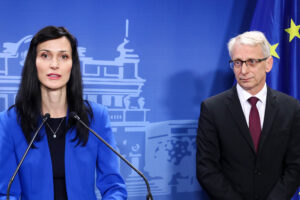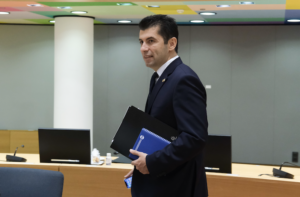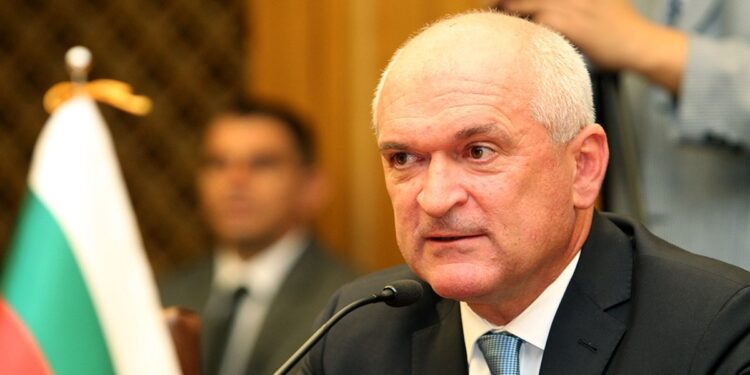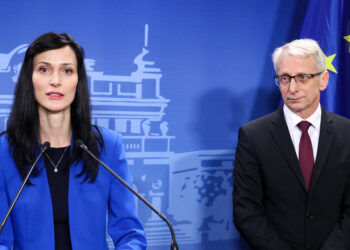Brussels – After nine months of apparent calm, Bulgaria fails the test of political stability and plunges into the black hole of early elections for the umpteenth time. Next June 9, coinciding with elections for the renewal of the European Parliament, Bulgarian voters will go to the polls for the sixth time in just over three years, hoping for the formation of a sufficiently solid majority in the National Assembly to finally ensure the emergence of a government capable of lasting. In the meantime, the president of the Sofia Court of Accounts, Dimităr Glavčev, will serve as interim prime minister to lead the country to the polls.

After the President of the Republic, Rumen Radev, awarded the mandate to Glavčev last Saturday (April 6), the government, with an expiration date of June 9, was sworn in on the morning of today (April 9) and will have as its sole purpose—except for matters of routine administration—the organization of the new round of elections. Before becoming president of the National Court of Auditors, the now-independent Glavčev was a deputy of the conservative GERB (Citizens for the European Development of Bulgaria) party from 2009 to 2021 and was speaker of the National Assembly from April to November 2017. Glavčev’s nomination and the announcement of early elections by President Radev came after the rejection of the mandate by outgoing Deputy Premier and Foreign Minister Mariya Gabriel for GERB and later by outgoing Premier Nikolai Denkov for the liberals of We Continue the Change – Democratic Bulgaria and by Slavi Trifonov for the populist movement There is Such a People.
The government crisis originated from the resignation of Prime Minister Denkov on March 5 to honour the government pact of May 2023 between the conservatives and liberals, which had sanctioned the nine-month rotation between Gabriel and Denkov to the posts of premier and deputy premier (and foreign minister). Twenty days of bitter tensions followed between the two forces because of the opposing views on the continuation of the other nine months of the alliance: for the conservatives, a substantial reshuffle of the government was considered necessary, while for the liberals, the rotation was to be limited to the role of prime minister and deputy prime minister/foreign minister (hence only between Denkov and Gabriel). Thus, the 11 outgoing executive members—including Denkov— refused to join the new Gabriel cabinet and, in turn, the party headed by Bulgaria’s most controversial politician, Boyko Borissov, cut off contact for a compromise solution. This led to the renunciation by the former European Commissioner for Innovation from the office given to her by President Radev and the subsequent unreconciled government crisis. Speaking to the Financial Times, the now ex-premier Denkov pointed a finger against the link between “corruption and Russian interference”, which could be at the root of the collapse of the understanding between liberals and conservatives and a threat to the upcoming elections in Bulgaria.
Three years of political instability in Bulgaria
With the government agreement between GERB and We Continue the Change, the political instability that led the country to hold five elections in exactly two years seemed to be over. It had all started with the outcome of the polls on April 4, 2021, when the conservatives were confirmed as the leading force, but in an extremely fragmented political landscape: after three months of failed negotiations to form an executive, President Radev had decided on an early return to the polls. Anti-system propaganda had rewarded the populist movement There is Such a People, founded by showman Trifonov in the July 11 elections. After another four months of unsuccessful negotiations between the parties, President Radev was forced to call for early elections in November of that year.

Former Prime Minister of Bulgaria, Kiril Petkov
On November 14, 2021, a quarter of preferences had gone to the anti-corruption We Continue the Change party, bypassing GERB’s conservatives and relegating Trifonov’s populists to the shadows. With the support of these two forces, Kiril Petkov was appointed premier for the first time with a sense of stability and planning for the country’s future. Under his leadership, talks with North Macedonia were pursued to overcome the identity dispute blocking the opening of negotiations for Skopje’s accession to the EU since December 2020. It was precisely this effort that was fatal to Petkov, although it did not prevent him from bringing the veto revocation to fruition: first, Trifonov’s party switched to the opposition and then, on June 22, 2022, the government was defied with a motion filed by GERB.
After a round of inconclusive consultations, it was back to voting in October, with the former prime minister Borissov’s new first place but the usual inability to reach a governing agreement between the parties. The last April 2, 2023 elections confirmed the now chronic political gridlock: the two most established parties found themselves around 25 per cent of the vote each, with the pro-Russian and anti-European nationalists of Vazrazhdane on the rise. This is also why the most experienced politician at the European level has been called and—despite the great difficulty in reaching an agreement between the first and second political forces—the risk of sliding into pro-Russian and anti-European chaos at the new elections convinced both parties to accept a compromise, represented precisely by the alternation to the office of premier and vice-premier over 18 months of government. When the new government was sworn in on June 6 2023, Denkov immediately assumed the role of prime minister and Gabriel of deputy prime minister and foreign minister, which they were supposed to exchange in these very agitated weeks. Instead, they are already looking ahead to the sixth election in just over three years.
English version by the Translation Service of Withub





![Un motoscafo in Svezia. Nell'Ue si pone un problema di mancato riconoscimento delle patenti nautiche [foto:
Matti Blume, Wikipedia Commons. Copyright: Creative Commons Attribution-Share Alike]](https://www.eunews.it/wp-content/uploads/2024/11/motoscafo-Saltsjoen_Stockholm_P1090679-120x86.jpg)
